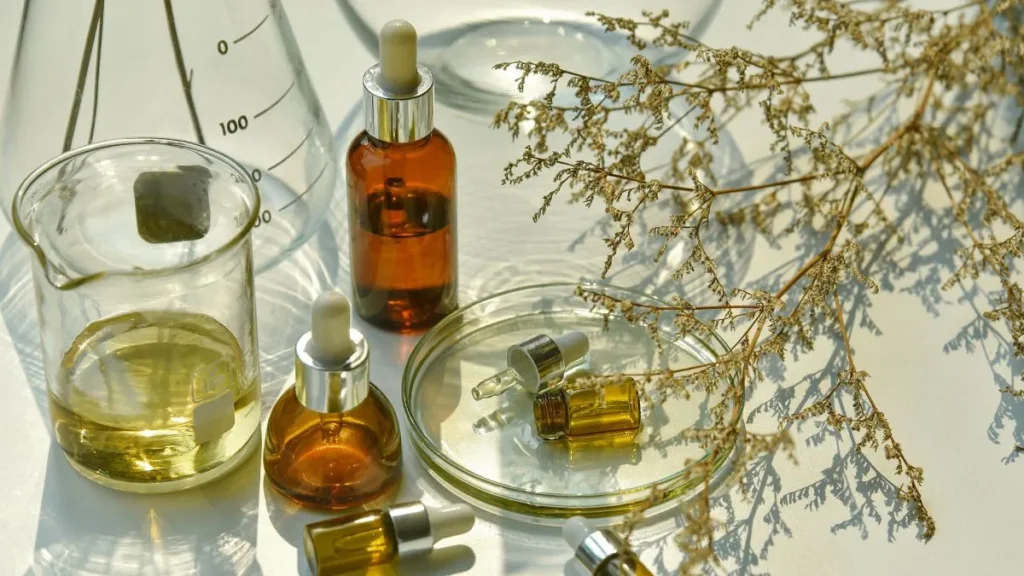The Shift Towards Natural Beauty
In recent years, the beauty industry has experienced a significant shift towards natural and organic skincare. Consumers are increasingly prioritizing products that are free from harmful chemicals, cruelty-free, and sustainable. This move aligns with the growing awareness of health, environmental impact, and the benefits of using natural ingredients in skincare routines.
What Defines Natural Beauty Trends?
Understanding Natural and Organic Skincare
- Natural Skincare: Uses ingredients sourced directly from nature, such as plant extracts and essential oils.
- Organic Skincare: Goes a step further, ensuring these ingredients are grown without synthetic fertilizers, pesticides, or GMOs.
Key Characteristics of Natural Beauty Trends
- Minimalism: Simplifying beauty routines with fewer, high-quality products.
- Transparency: Brands disclosing ingredients and sourcing practices.
- Sustainability: Focus on eco-friendly packaging and practices.
The Rise of Clean Beauty
What is Clean Beauty?
Clean beauty emphasizes products free from toxic chemicals such as parabens, sulfates, and artificial fragrances. These products are designed to be gentle on the skin and the environment.
Top Clean Beauty Brands
- Herbivore Botanicals: Known for plant-based, cruelty-free products.
- Tata Harper: Offers luxurious organic skincare solutions.
- Drunk Elephant: Focuses on biocompatible and non-toxic formulas.
Benefits of Organic Skincare Products
Skin Health
- Gentle on Sensitive Skin: Organic products often reduce irritation and allergic reactions.
- Nutrient-Rich: Contain vitamins, antioxidants, and natural oils that nourish the skin.
Environmental Impact
- Eco-Friendly Practices: Sustainable farming and biodegradable packaging reduce the carbon footprint.
- Reduced Pollution: Organic farming minimizes soil and water contamination.
Ethical Considerations
- Many organic skincare brands prioritize cruelty-free testing and fair trade practices, aligning with ethical consumerism.
Popular Natural Ingredients in Skincare
Aloe Vera
Known for its soothing and hydrating properties, aloe vera is ideal for treating sunburns and dry skin.
Coconut Oil
A versatile ingredient, coconut oil provides deep hydration and anti-inflammatory benefits.
Tea Tree Oil
This essential oil is a natural antiseptic, effective in combating acne and blemishes.
Shea Butter
Rich in vitamins A and E, shea butter deeply moisturizes and protects the skin from environmental damage.
Rosehip Oil
Packed with antioxidants and fatty acids, rosehip oil promotes skin regeneration and reduces signs of aging.
DIY Organic Skincare Solutions
Homemade Face Masks
- Avocado and Honey Mask: Hydrates and soothes dry skin.
- Oatmeal and Yogurt Mask: Exfoliates and calms sensitive skin.
Natural Scrubs
- Sugar and Coconut Oil Scrub: Provides gentle exfoliation.
- Coffee Grounds and Olive Oil Scrub: Reduces cellulite and improves circulation.
Herbal Toners
- Rose water and witch hazel are excellent natural toners that refresh and balance the skin.
The Science Behind Natural Skincare

The Role of Antioxidants
Natural skincare products are rich in antioxidants like vitamin C and E, which combat free radicals and prevent premature aging.
Chemical-Free Formulas
Eliminating synthetic chemicals reduces the risk of skin damage and long-term health issues.
Skin’s Natural Barrier
Organic products support the skin’s microbiome, maintaining its natural barrier and hydration levels.
Sustainable Practices in Natural Beauty
Eco-Friendly Packaging
- Biodegradable Materials: Paper, bamboo, and recycled plastics are replacing single-use plastics.
- Refillable Options: Many brands now offer refill stations to minimize waste.
Green Manufacturing
- Renewable energy and water-saving technologies are integral to sustainable production.
Cruelty-Free and Vegan Options
Ethical considerations play a crucial role in the natural beauty movement, ensuring no animals are harmed in product testing or sourcing.
Top Natural Beauty Trends in 2024
Skinimalism
A trend that emphasizes “less is more,” focusing on healthy, glowing skin rather than layers of makeup.
Blue Beauty
This trend goes beyond green beauty by prioritizing ocean-safe products and reducing marine pollution.
Fermented Skincare
Fermented ingredients like rice water and probiotics are gaining popularity for their enhanced absorption and benefits for skin health.
Waterless Beauty
Products with no water content, such as solid shampoos and concentrated serums, reduce water waste and enhance sustainability.
Challenges in the Natural Beauty Industry
Greenwashing
Some brands falsely claim to be natural or organic without adhering to strict guidelines. Consumers must remain vigilant and check certifications.
Shorter Shelf Life
Without synthetic preservatives, natural products may expire faster, requiring careful storage.
Higher Costs
Organic farming and sustainable practices can make these products more expensive, posing a barrier for some consumers.
Certifications to Look For in Organic Skincare
USDA Organic
Ensures the product meets strict organic farming standards.
COSMOS Standard
Recognized globally for certifying organic and natural cosmetics.
Leaping Bunny Certified
Guarantees cruelty-free testing and manufacturing.
Fair Trade Certified
Ensures ethical sourcing of ingredients and fair wages for workers.
Natural Beauty and Social Media
Influence of Social Media on Trends
Platforms like Instagram and TikTok have popularized natural beauty routines, with influencers showcasing their favorite organic products.
Education Through Content
Brands and creators use social media to educate consumers about ingredient benefits, sustainability, and ethical practices.
The Future of Natural Beauty
Technological Advancements
- AI and Personalization: Customized skincare solutions based on individual skin types and concerns.
- Biotechnology: Lab-grown ingredients that mimic natural compounds while reducing environmental impact.
Inclusivity in Skincare
Future natural beauty trends will focus on creating products suitable for diverse skin tones and types.
Global Collaboration
Incorporating traditional remedies and natural ingredients from various cultures will expand the organic skincare landscape.
Embracing Natural Beauty and Organic Skincare
The natural beauty movement reflects a broader shift toward healthier, more sustainable lifestyles. Organic skincare not only nurtures the skin but also contributes to environmental preservation and ethical consumerism. As awareness continues to grow, the future of beauty lies in embracing natural ingredients, transparent practices, and innovative solutions that prioritize both people and the planet.







